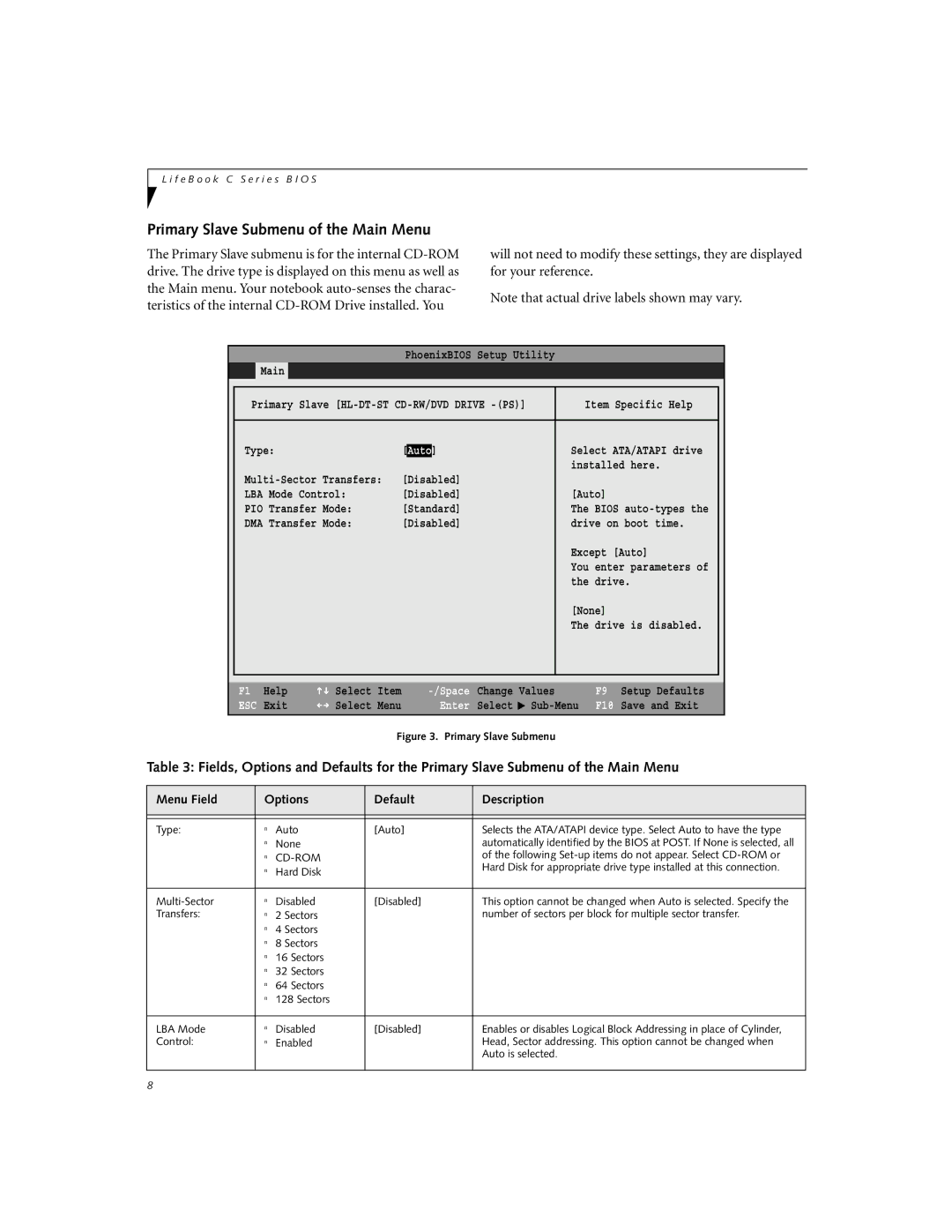C-7631, C-6611, C-6631 specifications
Fujitsu Siemens Computers made significant contributions to the computing landscape with its series of enterprise-grade servers, including the C-6631, C-6611, and C-7631. These models were designed to meet rigorous demands in both performance and reliability, catering to a diverse range of applications in data centers and corporate environments.The Fujitsu Siemens C-6631 is known for its robust architecture, providing a balanced blend of performance and energy efficiency. It features a dual processor configuration, allowing it to leverage multiple cores for enhanced processing capabilities, making it suitable for demanding applications such as database management and enterprise resource planning. Additionally, the C-6631 supports large memory capacities, which is crucial for handling intensive workloads and optimizing virtualization environments.
On the other hand, the C-6611 model offers a more compact solution without sacrificing performance. It is designed to occupy minimal space, making it ideal for smaller data centers or remote offices where space is a premium. This server maintains strong performance metrics, featuring advanced cooling technologies that ensure reliable operation over extended periods. The C-6611 also supports various RAID configurations, enhancing data redundancy and protection against failures.
For those seeking high performance, the Fujitsu Siemens C-7631 stands out with its impressive scalability. This server is equipped to handle the latest multi-core processors and high-speed interconnects, allowing it to adapt to growing business needs. The C-7631 is built with state-of-the-art virtualization capabilities, enabling multiple operating systems to run concurrently, which maximizes resource utilization. Its robust storage options, which include support for SSDs and high-capacity HDDs, further bolster its capacity to handle large data volumes.
All three models incorporate advanced management features that simplify system monitoring and maintenance. Remote management capabilities allow IT personnel to oversee server health and performance metrics without physically accessing the hardware, which is a significant advantage for enterprises with distributed computing environments.
In summary, Fujitsu Siemens Computers' C-6631, C-6611, and C-7631 systems exemplify the company's commitment to delivering reliable, scalable, and efficient server solutions tailored to meet the unique demands of modern enterprises. With their advanced technologies and features, these servers continue to be relevant in various operational contexts, addressing the critical need for performance and reliability in today’s data-driven world.

